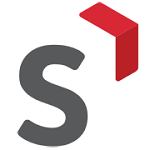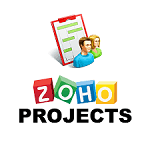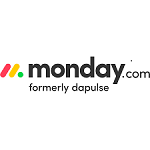Collaboration software, also known as collaborative groupware, leverages various technologies to boost the efficiency of individuals working in a team or group at any organization.
 Get Free Demo: Best Collaboration Software
Get Free Demo: Best Collaboration Software
Since effective teamwork is critical for the success of any business, the primary objective of collaboration software is to centralize and automate the communication processes of teams or groups and help them reach their goals quickly. It also reinforces team relations, besides assisting businesses to gain a competitive advantage.
Considering the ever-increasing number of workers working remotely, the demand for collaborative groupware is rising by leaps and bounds. The most significant advantage of this powerful work management platform is that it helps you easily coordinate with remote workers, besides minimizing your travel expenses.
Types of Collaboration Tools & Software
There are various types of collaboration software offering a different combination of features to automate your workflow. Besides enhancing the transparency and productivity of your teams, the different types of collaboration software offer useful communication, conferencing, and coordination tools.
While communication tools such as instant messaging, video calls, voice mails, and emails enable teams to exchange messages between themselves, conferencing tools such as audio/video conferencing, IM teleconferencing, forums, social media group chats, etc., facilitate real-time communication among team members. Similarly, coordination tools such as time trackers, spreadsheets, calendars, notifications, etc., allow you to easily schedule and conduct group activities.
There Are Two Dimensions of Collaborative Software
(i) Real-time collaborative software (audio-video communication systems, chat systems, etc.) that allows users to work together at the same time; and
(ii) Non-real-time software (email, mailing lists, group calendars, etc.) that enables users to accomplish tasks together at different times.
Businesses across the world are increasingly investing in collaborative software to reap its endless benefits. In this post, we have listed the top five types of collaboration software and their unique features and advantages so you can pick the right software considering your business requirements. So here we go.
 You May Also Read: 10 Best Collaboration Tools for Software Development
You May Also Read: 10 Best Collaboration Tools for Software Development
Top 6 Collaboration Tools for Your Business
1. Asana
Launched by Facebook co-founders Dustin Moskovitz and Justin Rosenstein, Asana is the most efficient of all types of collaboration software. This web-based software has been specially designed to facilitate the smooth management of projects and help teams accomplish their goals faster. Compared to the other types of collaboration software, Asana is a better option as it allows you to strategize your work as per your requirements, besides enabling you to assign tasks, share work-related information, and manage deadlines. With Asana, you can keep tabs on every stage of tasks or projects and stay updated with the latest developments.
Features
Here are some useful features offered by Asana: tagging, real-time updates, search functionality, projections, chat/commenting, drag & drop interface, collaborative workspace, collaboration tools, document storage, permission management, access control, automatic alerts, activity dashboard, and much more.
Advantages
- Asana helps you set priorities and keeps your team on the same page.
- Streamlines workflows and reduces errors.
- It also offers a free version with limited features for teams consisting of more than 15 members.
2. Scoro
Scoro is the most comprehensive team management platform of all types of collaboration software. Small and medium-sized businesses highly prefer this cloud-based software.
Features
Scoro’s project management features help you manage all the facets of your project in a centralized place. It enables you to keep tabs on your KPIs, monitor projects in real time, assign billable and non-billable tasks, set a budget for different tasks, and evaluate the set budget against the actual results. Besides enabling you to assign tasks and schedule meetings, your team can manage their tasks according to priorities and deadlines. Scoro’s financial management features allow you to set multi-currency conversion rates based on clients, projects, and team members. It also automates late invoice reminders and lets you issue sales, prepayment, and credit invoices.
Advantages
- It converts invoices, orders, quotes, and other documents into PDF format.
- Compatible with iOS and Android devices and can be accessed anywhere, anytime.
- Offers a 14-day free trial period to let you assess its overall performance.
3. Zoho Projects
It is among the most sought-after collaboration solutions among big and small companies, including freelancers. Zoho Projects is considered the best among all types of collaboration software, enabling you to manage your teams scattered around the world seamlessly.
Features
Zoho Projects offers a host of useful task management features such as project administration, knowledge sharing, charts and reports management, social project management, real-time notifications, workflow management, and task management features to get your team together. Its interactive message board allows you to post different topics and enhance collaboration by enabling everyone to participate in discussions.
Advantages
- Offers a lot of flexibility
- Offers third-party integration
- It can be integrated with your favourite Google apps
- It also provides a free trial period so that you can evaluate the capabilities of the software
4. Monday.com
This award-winning platform is leading the collaborative software market because of its flexibility and versatility. Monday.com offers an intuitive platform to customize your workflow. It has a highly customizable user interface allows you to plan your tasks visually. What’s more, you can track the progress of your team at a glance.
Features
Monday.com is an end-to-end user platform that offers impressive collaboration features such as email updates/notifications, team tagging, third-party integration, knowledgebase, motivational tools, personal & public boards, a visual display of the progress of tasks, and lots more.
Advantages
- Facilitates effortless access and continuous monitoring.
- Allows you to add live comments on visuals and
- Enables you to copy and paste text from Adobe.
5. Intraboom
This is yet another high-tech and all-in-one digital workplace collaborative solution that provides your group a mobile environment to communicate and accomplish their tasks. Intraboom offers a wide array of tools to help teams carry out tasks – individually and collectively.
Features
Besides task management, it offers useful features such as a group calendar, activity dashboard, team bulletin, group calendar, discussion boards, chat, private messaging, due date tracking, real-time document sharing, cloud-based intranet, image and video gallery, and project collaboration tools.
Benefits
- With Intraboom, you can do away with the need for multiple collaboration systems or cloud storage systems.
- Facilitates quick, secure, and simple collaboration; and
- Eliminates the need for configuration.
6. ProofHub

ProofHub is an easy-to-use project management and team collaboration software designed to simplify how teams manage their tasks, projects, and communications. A comprehensive tool, ProofHub brings together all that you need to plan your projects, manage your tasks, organize your files and documents, collaborate with remote team members in real-time, track progress, and stay on top of everything.
Features
ProofHub’s task management feature lets you add tasks with deadlines and assign them to team members. Using Kanban boards, you can create custom workflows and easily monitor task and project progress. The real-time discussion feature in ProofHub is great for teams to frequently brainstorm and collaborate while working on complex tasks. You can communicate using the in-built chat app. One of the best features of ProofHub is its online proofing tool, which simplifies feedback sharing as it lets you share files, annotate changes using markup tools, and proof and approve those files with a single click. ProofHub has an automatic timer that helps you track time spent on tasks. ProofHub also has custom reports in which you can set parameters of your choice to manage your resources better.
Advantages
- Flexible task management options with simple to-do lists, agile workflows, and Kanban boards
- Integrates with third-party apps like Google Drive, OneDrive, Dropbox, Box, and more
- Mobile app available
- Offers a free trial
These six different types of collaboration software are making waves in the industry. When picking the best collaborative software for your business, make sure the software is intuitive and user-friendly. Also, ensure it can be accessed anytime, anywhere, via the internet. Last but not least, ensure the vendor offers a free trial period so you can experience it first-hand and know how it functions.
A Digital marketing expert with a passion for all things digital. With a wealth of experience in the field, can excel at crafting and executing data-driven marketing strategies that drive results. Also, loves to travel and explore new things.










